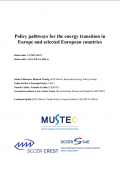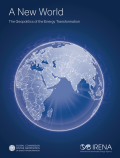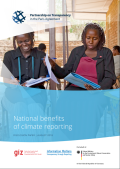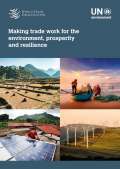
This report investigates clean energy policy strategies in France, Germany, Spain, Italy, Switzerland, and the European Union (EU) as a whole and finds that none of these pathways would lead to decarbonisation to the extent required to fulfil the European (Union and national) commitments under the Paris Agreement. The report points to a greater need for power system flexibility in order to expand intermittent renewables.

A New World: The Geopolitics of the Energy Transformation, analyzes the geopolitical implications of the global energy transformation driven by renewables. It is the culmination of ten months’ deliberations and consultations and informed by a number of background papers drafted by experts in the fields of energy, security, and geopolitics.

The discussion paper, National Benefits of Climate Reporting, intends to highlight benefits that a country can obtain through transparent and ambitious climate reporting and a robust and self-sustained Measurement, Reporting and Verification (MRV) system, which go beyond the obvious benefit of fulfilling current and future reporting requirements under the UNFCCC. By highlighting the national benefits that are less visible at first glance, the discussion paper seeks to enhance the understanding of policy-makers and other stakeholders as to why transparency and MRV for climate reporting has merits of its own, and how countries may tap such national benefits. To this end, the discussion paper identifies and describes a number of such national benefits and provides concrete experiences and examples from various countries.

This policy brief, How to Better Reflect Transport in Climate Action Efforts, addresses the transport sector, the second-largest emitting sector in the world, and how to streamline it into the climate change policy process.

This publication illustrates how trade can support action by governments, companies, innovators, and consumers to improve economies and protect the environment.
